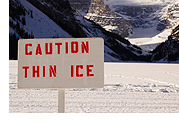|
||||||||||||||
Links
to relevant sections in main National curriculum, GCSE and GCE syllabuses A
number of efforts have already been made to link curriculum requirements
with the focus on climate change, especially for KS1-KS3. Moreover recently
(Feb 07) has seen the revamping of the secondary curriculum to include a
greater emphasis on climate change and the distribution of a climate change
resource pack to all secondary schools including Al Gore’s film “An
Inconvenient Truth” and a Defra multimedia CD containing two short
climate change films, an animation about the carbon cycle and a film about
the work of the climate change champions. It is assumed that as with the
National Curriculum for KS1 to KS3, students, and staff teaching the 14-19
age range are familiar with these developments and there remain statutory
KS4 requirements for some subjects. A
number of efforts have already been made to link curriculum requirements
with the focus on climate change, especially for KS1-KS3. Moreover recently
(Feb 07) has seen the revamping of the secondary curriculum to include a
greater emphasis on climate change and the distribution of a climate change
resource pack to all secondary schools including Al Gore’s film “An
Inconvenient Truth” and a Defra multimedia CD containing two short
climate change films, an animation about the carbon cycle and a film about
the work of the climate change champions. It is assumed that as with the
National Curriculum for KS1 to KS3, students, and staff teaching the 14-19
age range are familiar with these developments and there remain statutory
KS4 requirements for some subjects. In
the 14-19 age range proper, the traditional main overlap with climate change
has been with Science especially Biology and Chemistry, and Geography. However,
given the Stern Review and its linkage not only with Economics but also
a wider subject base including politics, physics, technology, engineering
and philosophy, legitimate study might be made in a growing number of subjects
at GCSE and GCE. Add to this the scope for using the context itself for
development of e.g. critical thinking and the search for links becomes academic
– the potential links are everywhere. In
the 14-19 age range proper, the traditional main overlap with climate change
has been with Science especially Biology and Chemistry, and Geography. However,
given the Stern Review and its linkage not only with Economics but also
a wider subject base including politics, physics, technology, engineering
and philosophy, legitimate study might be made in a growing number of subjects
at GCSE and GCE. Add to this the scope for using the context itself for
development of e.g. critical thinking and the search for links becomes academic
– the potential links are everywhere. QCA provide summaries of accredited examinations illustrating each of the available boards and the various module and unit content for GCE. Individual boards give full details of their syllabuses for both GCE and GCSE. This enables searches (the files are pdf) to be made for the particular term or theme e.g. “climate change” or “biodiversity” etc. However the occurrence of the word is not always indicative of a valuable reference and conversely if the “wrong” term is chosen to search for a seemingly negative result may arise when in fact a particular syllabus may be closely aligned with the focus. This puts the pressure on the teacher to make the right analysis and the appropriate interpretation. In the context of this resource, the focus is on developing higher level thinking and reasoned argument, autonomy and increasing responsibility and capability for “own” learning. It is therefore more within the gift of the teacher than QCA or an examination board to determine whether for example the resource is used in English to develop comprehension or précis, focused analysis of texts, writing for specific purposes or audience or developing editorial skills in terms of generalisation or evaluation. Similarly it is up to the science teacher to set the task of checking what the impact of a rising population is in terms of its effect on global CO2 and temperature, given we exhale CO2 and water vapour and generally lose at least some heat to our surroundings, and to determine whether this is a significant contribution. In business, economics or technology again it would seem an opportunity which the teacher needs to identify to choose a business enquiry looking at the role of business on the global future focusing on e.g. carbon trading or to design, make or critically evaluate some energy saving product. As with developing thinking skills, the most important choice is how study and learning are designed rather than the specifics of what and this resource can offer challenging opportunities as a legitimate context within most areas. |
||||||